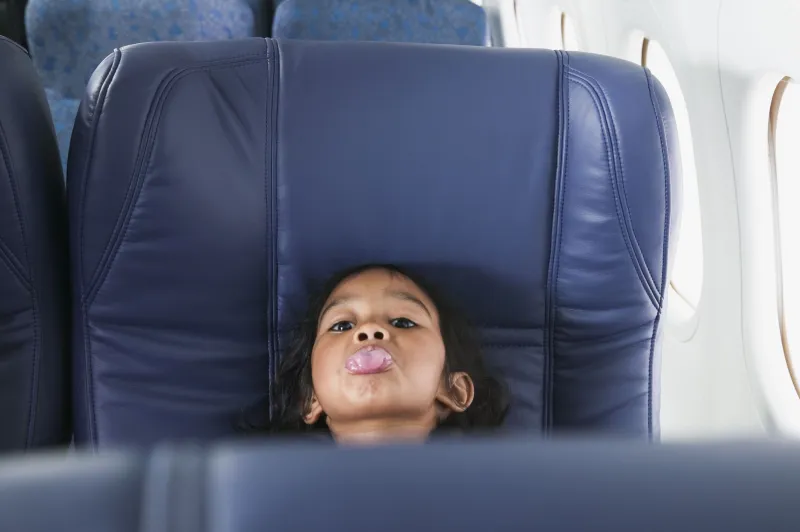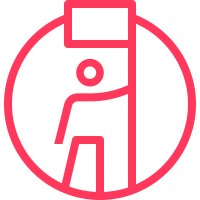
Αirplane flights with kids requires from us to be extra careful to ensure their safety. In an unknown environment such as the airplane a child will be curious to explore and you can not let it unsupervised. Moreover pressure changes in the cabin can cause some serious discomfort, so you should take measures to reduce or even avoid the affect.
-Bring along safe toys: Try to avoid bringing toys that are sharp, heavy, or can break easily. If the child has an electronic game, only allow them to use it during the cruise portion of the flight. Electronic games may interfere with an aircraft's navigational system during other phases of the flight. Make sure your child wears his/her seat belt or an infant safety belt at all times; turbulence can happen at anytime and without warning. If the child wants to get up and move around, let them do so only if the seat belt sign is off.
-Seat your child away from the aisle: Small children enjoy reaching out and exploring, but if they are next to the aisle they could get bumped by catering or duty-free trolleys or other passengers. Ideally, two responsible adults should sit on either side of the child. Alternatively, seat the child between yourself and a window.
-Keep your children supervised: An unsupervised or unrestrained child could wander into dangerous areas such as galleys, especially if the responsible adult falls asleep. Also mind that your child doesn't reach for cups of hot coffee, tea or other hazards.
-If your child has a medical condition that may become an issue during the flight, inform a flight attendant, counter agent or gate agent of the possibility.
-Your child may experience the uncomfortable sensation of ear-popping due to pressure changes in the cabin. Although this sensation could become quite painful, it is only temporary and should subside within minutes of landing. To avoid the discomfort however, here are a few tips: In the case of babies and toddlers, breastfeed or bottle-feed them (not, however, during take-off or landing and on the condition there is no turbulence) or give them a pacifier; give older children a piece of chewing gum or a hard candy to suck on, and remind them to yawn frequently; keep your child awake during take-off and landing because during sleep you don't swallow as often and it's harder for you to keep up with the changes in air pressure.



Airbnb superhost since 2014

Hellenic Association
of Travel & Tourist Agencies
